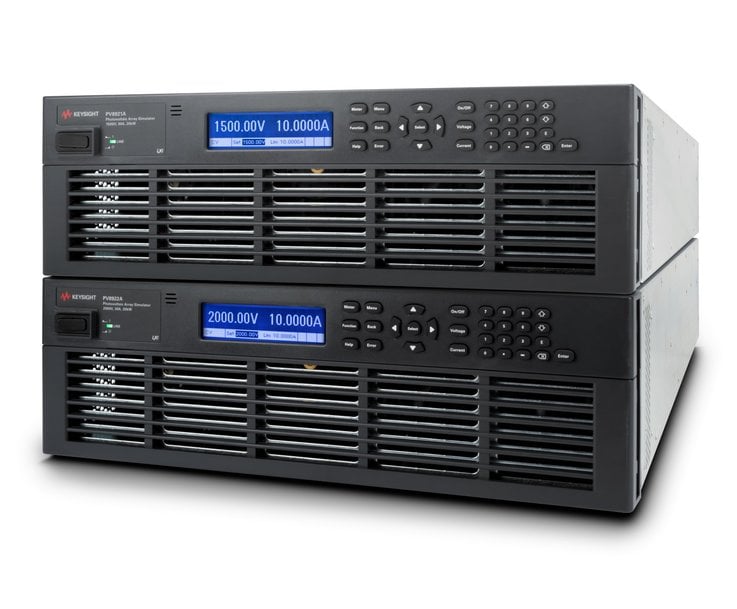Keysight First to Launch Photovoltaic Array Simulators that Deliver 20 Kilowatts in a 3U Format
Keysight’s next generation PV8900 enables engineers to maximize solar power conversion.

Keysight Technologies, Inc, a leading technology company that helps enterprises, service providers and governments accelerate innovation to connect and secure the world, has launched a new family of photovoltaic (PV) array simulators that are the first to deliver 2000 V and 20 kW of power in a 3U format, enabling engineers to maximize solar power conversion.
To keep solar power at grid parity with competing methods of power generation, performance and power conversion efficiency are critical. Small increments in power production can impact profitability of solar power generation. Engineers need to ensure that their solar inverters can convert maximum power from the connected solar array. However, developing and verifying the performance of inverter maximum power point tracking (MPPT) algorithms and circuits is complex, while testing is difficult, expensive and time consuming.
Multiple MPPT inverters provide flexibility for large commercial arrays but create a test challenge as current solutions test one MPPT channel at a time. The Keysight PV8900 Series along with the DG9000A advanced photovoltaic inverter test software goes beyond existing standards, testing up to 12 MPPT channels simultaneously.
Keysight's next generation PV8900 series of PV array simulators offer the following features and customer benefits:
- The highest power density with 20 kW in 3U high that can be paralleled to 200 kW to test string inverters at full power capacity while reducing rack space.
- Up to 2000 V, 30 A output to test the next generation of string inverters which future proofs array simulator investment.
- DG9000A advanced PV inverter test software simplifies curve creation and download to quickly gain insight into a single MPPT or up to 12 MPPTs.
- Versatility to use as a standard 20 kW autoranging power supply with built-in output list, datalogging and arbitrary waveform generation for improved return on investment.

